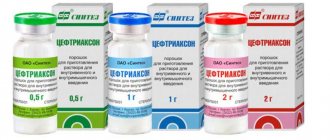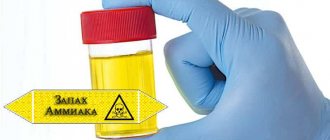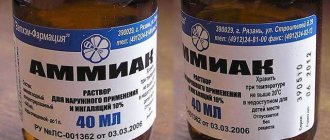What is sweat?
Sweat can act as a barrier against bacteria on the skin and also moisturize the skin. Sweat contains water and sodium chloride, as well as small amounts of substances such as:
- potassium
- calcium
- ammonia
- urea
- lactate
- ethanol
Sometimes a person may smell ammonia in their sweat.
Sweat glands throughout the body secrete sweat. There are three types of sweat glands, called eccrine glands.
,
apocrine
and
apoecrine
glands.
Eccrine glands are the most common throughout the body. This type of sweat gland produces the most sweat, but it has no odor.
Apocrine glands are found in certain areas of the body such as the chest, face, scalp, perineum and armpits. They produce sweat, which comes through the hair follicles rather than through the pores on the skin. Sweat from apocrine glands may have an unpleasant odor. It contains high levels of lipids, as well as sugar and ammonia.
Apoecrine glands are located only in the armpits. They release sweat onto the surface of the skin in the form of salt water. Sweat from the apoeccrine glands is not thought to help regulate a person's temperature because it does not evaporate easily from the armpits.
What should you do if there is a sudden change in the smell of urine compared to the usual?
Initially, it is worth assuming harmless reasons for the appearance of an unpleasant odor and observing the body for several days, during which you need to stop taking medications (if this is the case) and stick to a neutral diet - a minimum of salt, spicy foods, strong coffee and tea, no beans, asparagus , alcohol and nicotine. Physical activity should also be within the usual average norms. Most likely, if these rules are followed, already on the second day, the urine will acquire a natural color and familiar smell, which means there is no reason to worry.
If the condition does not normalize for a longer period and is accompanied by a feeling of discomfort - pain and a feeling of heaviness in the lower back, and the urine loses transparency and becomes very dark, you should immediately make an appointment with a urologist to find out the reasons for this behavior of the body.
As a rule, a urine test is prescribed for biochemistry, culture and microflora sensitivity to antiseptics. Sometimes other studies may be required, for example, ultrasound and even radiography, but this is according to the tactics of the attending physician. Video on the topic
Sweat smells like ammonia - reasons
There are many possible reasons why your sweat smells like ammonia. These include:
Diet
A person who eats a diet high in protein but low in carbohydrates may produce ammonia, which the body then excretes in sweat. The body typically uses carbohydrates for energy by converting them into glucose because carbohydrates are the fastest source of energy. However, if there are not enough carbohydrates, the body will use protein for energy.
Protein breaks down into amino acids, which the body converts into ammonia. The body then excretes this ammonia in urine and sweat, which can cause a foul odor.
Dehydration can also cause your sweat to smell like ammonia. This happens because the body needs water to get rid of ammonia through sweat. If there is not enough water to dilute the ammonia produced by the body, the odor may be stronger.
Exercise
Some studies show that exercise affects ammonia levels in sweat. A 2007 study found that ammonia levels in sweat increase as a person exercises more intensely.
A 2005 study found that although sweat ammonia levels increased significantly during exercise, they then decreased within 24 hours after exercise and remained low after 72 hours. This suggests that sweat smells strongest of ammonia during or immediately after exercise.
Conditions and diseases
Certain health conditions can cause a person's body odor to change. They include:
Hyperhidrosis
Hyperhidrosis is characterized by excessive sweating of the apocrine glands. There are two types of hyperhidrosis:
- Primary focal hyperhidrosis
- A type of hyperhidrosis that can affect the armpits, arms, legs, and forehead. Primary focal hyperhidrosis is not caused by an underlying health condition or a side effect of medications. - Secondary hyperhidrosis
– This type of hyperhidrosis is caused by an underlying health condition or a side effect of medications.
If a person sweats a lot, the sweat can accumulate on their skin and interact with bacteria. This may cause an odor.
Kidney diseases
Kidney disease can manifest itself as a change in a person's body odor. The kidneys are responsible for removing urea from the body. However, if the kidneys are not working properly, urea can enter the bloodstream. This condition is called uremia and is a serious symptom of kidney failure. If a person has high urea levels, the body may excrete urea through sweat and cause an unpleasant odor. The main causes of kidney disease are diabetes and high blood pressure, which account for up to 66% of cases.
Diabetes
A complication of diabetes is a condition called diabetic ketoacidosis
(DKA). DKA occurs when the body burns fat for energy when there is not enough insulin in the cells to use glucose. When the body burns fat for energy, it produces ketones. A type of ketone called acetone can make a person's breath smell fruity or change a person's body odor. If ketone levels become too high, the blood can become too acidic, which can be life-threatening. DKA can develop in anyone and causes symptoms such as:
- frequent urination
- thirst
- dry mouth
- high blood sugar
- high levels of ketones in urine
- vomit
Trichomycosis
Trichomycosis
is a bacterial infection that affects the hair in the armpits. The bacterium Corynebacterium causes trichomycosis. According to a 2013 study, odor is a symptom of trichomycosis in 35.7% of cases.
Trimethylaminuria
Trimethylaminuria
- a rare disease. Elevated levels of the compound trimethylamine (TMA) in the body causes trimethylaminuria. TMA has a fishy smell. The body excretes TMA through urine, sweat and breathing. Bacteria in the intestines produce TMA. A person with trimethylaminuria may inherit a defective gene that is responsible for the breakdown of TMA.
Treatment may include taking activated charcoal supplements to remove excess TMA from the body. B12 supplements, antibiotics, and probiotics may also help.
Meat consumption
Dietary choices can affect body odor, including whether people eat meat or not. A 2006 study found that participants on a meat diet had a body odor that others perceived as less attractive than the body odor of participants who did not consume meat.
Dairy consumption
In rare cases, eating eggs and milk may cause a person's sweat to smell different. This is because dairy products produce trimethylamine when the body digests them and have a strong fishy odor.
A 2015 study found that trimethylamine-N-oxide (TMAO) levels increased after participants ate dairy products. Trimethylamine produces TMAO. Although trimethylamine N-oxide is odorless, if a person cannot properly digest trimethylamine, the body can excrete it through sweat and cause body odor.
Spices and seasonings
Spices such as cumin or curry can change the smell of a person's sweat. This is because when digested, they can form sulfur compounds, which can react with sweat and cause an unpleasant odor. Onions, herbs and garlic can also have the same effect.
Stress
A person may sweat due to stress. Researchers say the apocrine glands are responsible for the production of stress-related sweat. Sweat from apocrine glands is thicker and contains more proteins and lipids. When this type of sweat hits the skin and mixes with bacteria, it can cause odor.
Hormones
A person's hormones can change during puberty, menstruation, pregnancy and menopause. Declining estrogen levels during menopause can cause sweating, which can increase odor if it mixes with bacteria on the skin.
Prevention
People can take the following steps to prevent ammonia odor from sweat. These include:
Diet change
To prevent the body from using protein as energy after exercise, which can cause sweat to smell like ammonia, a person can increase the amount of carbohydrates in their diet. Whole grains, vegetables, fruits and beans are healthy sources of carbohydrates. Additionally, if a person notices that their sweat begins to smell like ammonia when they eat foods such as fish or dairy products, they may want to reduce their intake of these foods or eliminate them from their diet.
Drink more water
Increasing your water intake can dilute your sweat and make it less noticeable.
Deodorants and antiperspirants
You can use deodorants to hide the smell of sweat. You can try antiperspirants that block the sweat glands and stop sweating. This can reduce the amount of sweat on the skin, which mixes with bacteria and creates an unpleasant odor.
Changing clothes
You should change your clothes more often to keep your skin dry and free of bacteria, which can react with sweat and cause odor.
Hygiene
Antibacterial soap will help fight bacteria on your skin. This will keep your skin clean and prevent sweat odor.
Antifungal creams or powders can also help a person reduce the risk of fungal infections.
Stress Reduction
If a person notices that they are sweating from stress, they can evaluate the sources of stress in their life. If you can reduce your stress level, you will sweat less and get rid of the smell of sweat.
Care
To control body odor, doctors recommend:
- Keep skin dry
- Wash with antibacterial soap
- Use antiperspirants and deodorants
You can contact your doctor to discuss the following medical procedures:
Microwave thermolysis
Microwave thermolysis is a procedure that uses microwave energy to stop the sweat glands from working. A 2013 study found that microwave thermolysis was an effective treatment for odor-causing sweat.
Botox
Doctors have approved the use of botulinum toxin A or Botox to treat excessive sweating. Botox can be an effective treatment for hyperhidrosis because it blocks the chemical that signals the sweat glands to produce sweat. Botox can cause an 82-87% reduction in underarm sweating. Botox injections can be effective in stopping underarm sweating for 4 to 12 months and possibly up to 14 months.
Prescription antiperspirants
Doctors recommend antiperspirants to help control excessive sweating and body odor. Antiperspirants sold over the counter may contain more active ingredients. These ingredients may include metal salts such as aluminum chloride hexahydrate. Antiperspirants are most effective when people use them both at night and in the morning.
Antibiotics
Antibiotics may be used to treat underlying conditions that cause sweat to smell like ammonia, such as trichomycosis.
How can you identify a problem by smell?
- A sharp, repulsive smell of a rotten egg appears in the urine during infectious inflammatory processes localized in the kidneys and with excessive consumption of alcohol, salt and spicy seasonings;
- The smell of fish is characteristic of the state of trimethylaminuria. This is a rather rare disease of a bacterial nature, in which microorganisms synthesize a substance in the urine that smells like rotten fish;
- Strong acetone odor in pathologies accompanied by impaired glucose metabolism. The reason for this may be diabetes mellitus, damage by pathogenic microorganisms or a low-calorie diet;
- An increase in urine concentration due to dehydration, increased sweating, diarrhea and vomiting leads to the release of urine with a persistent odor of ammonia;
- If your urine smells like maple syrup, you may have problems with amino acid metabolism. This is a rather rare pathology, apparently having a genetic predisposition, since it mainly manifests itself in early childhood.








